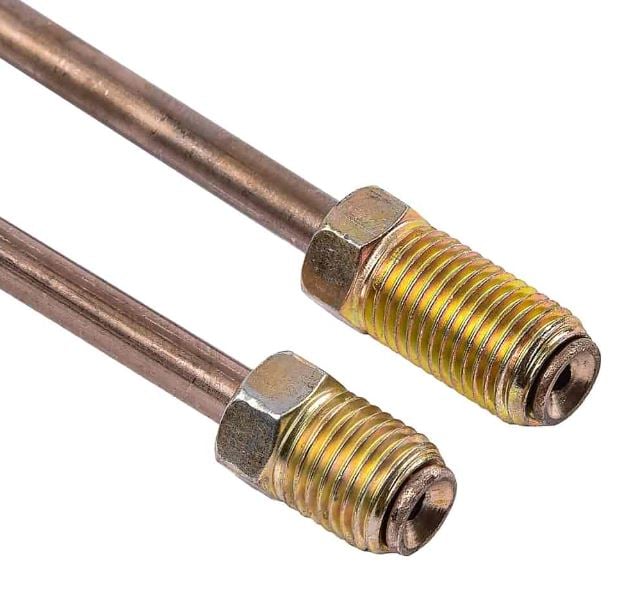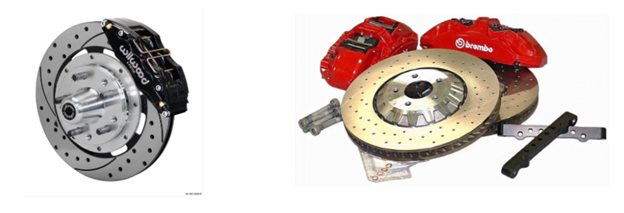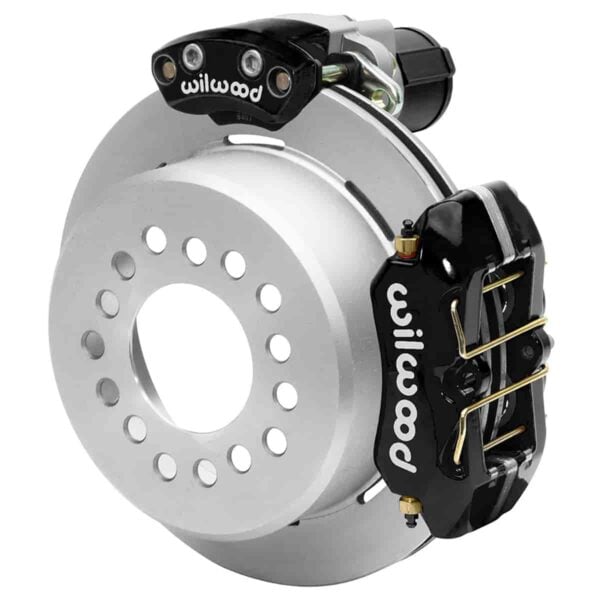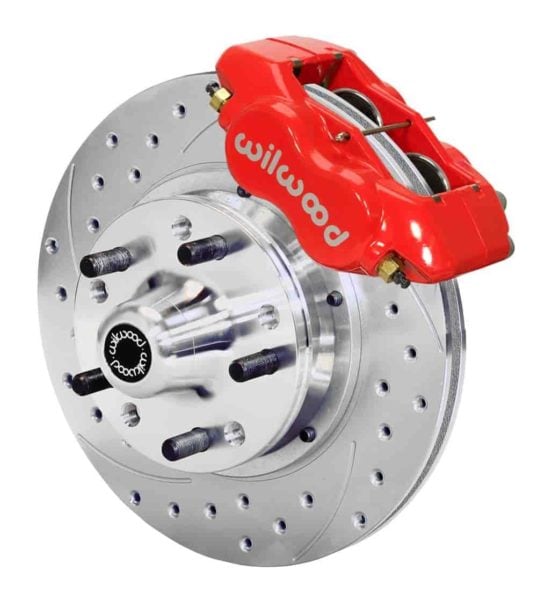

It's never a pleasant experience when you push down on the brake pedal and your car or truck doesn't stop properly. There are many possibilities for why your brakes are not performing and one component that connects all of the hydraulic parts is the brake fluid. Brake fluid is designed to push brake caliper pistons and wheel cylinders under pressure created by the master cylinder and power brake booster. When there is a leak, braking performance will degrade and eventually lead to failure without enough fluid. So how do you identify and repair a brake leak? Read on to learn more.
Signs You Have a Brake Fluid Leak
There are different signs of leaking brake fluid from your vehicle which include puddles underneath, low fluid level, and a decrease or loss of brake performance.
Brake Fluid Under The Vehicle
The most common areas for leaking brake fluid to appear is under the vehicle on the inside of the wheel and tire, below the master cylinder or firewall area, and at the rear brake hose connection. Brake fluid is light yellow in color when new and darkens to a brown shade as moisture and contamination build up.
Low Brake Fluid Level In The Master Cylinder Reservoir
If the brake fluid was filled to the proper level in the master cylinder in your vehicle and has gone down, a leak is present. As brake fluid doesn't evaporate, it has to go somewhere. It's important to take note of this when checking the brake fluid level and look for the leak to keep your brake system functioning properly.
Reduced Or Loss Of Braking Performance
Another symptom of a brake fluid leak is reduced or even loss of braking performance. Without enough brake fluid, air most likely will be introduced into the brake lines, causing the brake pedal can feel spongy or even go down further. This is a very dangerous safety concern and the vehicle should not be driven without properly operating brakes.

Where Does Brake Fluid Usually Leak From?
Brake fluid leaks can be a cause for concern as they compromise the effectiveness of a vehicle's braking system, posing a significant safety risk. Typically, brake fluid leaks originate from several key areas within the braking system. One common source of leaks is from the brake calipers or wheel cylinders, which house pistons that press against the brake pads or shoes to initiate braking action. Damaged or worn seals within these components can lead to fluid seepage. Additionally, brake lines, particularly those made of rubber or metal, are susceptible to corrosion, abrasion, or physical damage, resulting in leaks along their length. Master cylinders, responsible for generating hydraulic pressure within the brake system, can also develop leaks around the reservoir or through worn seals. Furthermore, brake fluid leaks may occur at the connections between brake hoses and metal lines or at the junctions of various hydraulic components. Identifying and promptly addressing brake fluid leaks is essential to maintain safe braking performance and prevent potential accidents on the road.
Determine What Caused Your Brake Fluid Leak
Once a brake fluid leak has been confirmed, the next step is to investigate where specifically the brake fluid is coming from. In some cases the source of brake fluid leaking is obvious, while for others, its unclear due to large amount of fluid in the area as well as a mixture of brake dust, dirt, and other contamination. Brake cleaner may need to be used along with cleaning and drying the area to help remove old fluid and identify where the leak is first appearing. Once cleaned, the brake pedal can be pumped to hopefully reveal the source of the leak.
Can You Drive with a Brake Fluid Leak?
Driving with a brake fluid leak poses significant risks to both the driver and others on the road and should be avoided at all costs. Brake fluid is a critical component of a vehicle's braking system, responsible for transmitting hydraulic pressure from the master cylinder to the brake calipers or wheel cylinders, ultimately enabling the vehicle to stop. A leak in the brake system compromises hydraulic pressure, leading to diminished braking performance, longer stopping distances, and potentially complete brake failure. In the event of a leak, the brake pedal may feel spongy or sink to the floor, indicating a loss of hydraulic pressure. Continuing to drive under these conditions is extremely hazardous and can result in accidents, injury, or loss of life. It is imperative to address brake fluid leaks immediately by having the vehicle inspected by a qualified mechanic and repairing any damaged components before driving again. Your safety and the safety of others on the road depend on it.
Typical Cost of Leak Repair
The brake fluid leak repair cost will vary depending on the brake components involved. Brake calipers can range in price from $25 to over $1,000 each, drum brake wheel cylinders from $10 to over $100 each, master cylinders from $30 to $800, brake proportioning valves from $30 to $150, and brake lines from $5 to $100+, depending on the application. Labor pricing varies by location, as well as the time needed to replace brake components.






How to Fix Your Brake Fluid Leak
Due to the extremely high pressures, brake fluid stop leak is not an option for repairing your brakes. Component repair or replacement will be required. Once the source of the brake fluid leaking has been identified, determine if a repair can be made (such as rebuilding calipers or master cylinder) or if replacement is quicker or easier. Next, drain the brake fluid and control where it goes since it is corrosive and harmful to paint and finishes. Then remove the failed part and either rebuild or replace it with a new component. Once complete, in nearly all cases, the brake system will need to be bled to remove all air and ensure fresh fluid is present throughout the entire hydraulic system. Finally, double check all connections and confirm the leak has stopped before doing a test drive.
Brake Properly With JEGS
JEGS has been providing the best array of performance parts to discerning enthusiasts across the country since 1960, when founder Jeg Coughlin couldn’t find many choices for his car. Hence, he founded JEGS to ensure that no one else would have to face the same difficulties. Today, we’ve got a comprehensive online store allowing you to browse, compare, and purchase from the comfort of wherever you are. A physical store in Columbus, Ohio is still maintained for those who like to shop in person. Whichever avenue you choose, we offer competitive pricing, great after-sales service, and expert advice.




